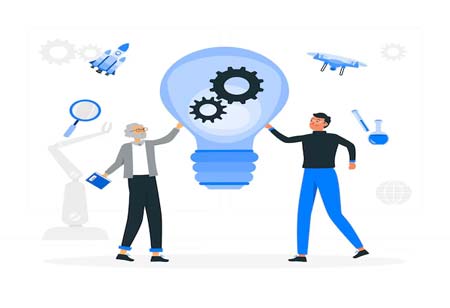THANK YOU FOR SUBSCRIBING
Be first to read the latest tech news, Industry Leader's Insights, and CIO interviews of medium and large enterprises exclusively from Hrtech Outlook
THANK YOU FOR SUBSCRIBING

By
HR Tech Outlook | Wednesday, December 10, 2025
Stay ahead of the industry with exclusive feature stories on the top companies, expert insights and the latest news delivered straight to your inbox. Subscribe today.
Fremont, CA: The fast-paced advancement of technology transforms how organizations nurture leadership abilities, providing inventive tools and strategies for more effective and efficient leader development. AI is in charge of modernizing this process. By processing extensive data, AI-driven platforms can pinpoint potential leaders, evaluate their strengths and weaknesses, and suggest customized development plans. The systems deliver personalized coaching and feedback, resulting in a learning experience tailored to the distinct needs of each leader.
AI-driven chatbots can simulate real-time decision-making scenarios, helping leaders practice and refine their problem-solving and communication skills. AI algorithms can track progress and provide insights into areas for improvement, ensuring continuous growth and alignment with organizational goals. VR immerses leaders in realistic scenarios, allowing them to practice handling high-pressure situations, conflict resolution, or strategic decision-making in a risk-free environment. AR enhances real-world experiences by overlaying digital information and providing real-time guidance during on-the-job training.
For instance, VR can simulate cultural interactions in global markets, helping leaders develop cross-cultural competence—a crucial skill in today's interconnected world. Interactive simulations, role-playing games, and competitive challenges motivate leaders to learn and apply new skills actively. Gamified platforms often include reward systems, progress tracking, and peer collaboration, creating a dynamic and enjoyable learning experience. Data analytics plays a pivotal role in leadership development by enabling evidence-based decision-making. Advanced analytics tools can evaluate the effectiveness of training programs, measure ROI, and identify trends in leadership behavior.
Organizations can pinpoint skill gaps, predict future leadership needs, and design targeted interventions by analyzing performance data. Furthermore, predictive analytics can identify employees with high leadership potential, allowing companies to invest in their development early. The data-driven approach ensures that leadership pipelines remain robust and aligned with organizational strategy. Digital collaboration tools and platforms are also redefining how leaders learn and connect. With the rise of remote work and global teams, these technologies facilitate seamless communication, mentorship, and peer learning across geographies.
Online learning management systems (LMS) provide access to many resources, including webinars, courses, and expert sessions, enabling leaders to learn independently. Social learning platforms foster knowledge-sharing and networking, allowing leaders to gain diverse perspectives and build relationships that enhance their effectiveness. Neuroscience and wearable technology are emerging as valuable tools in leadership development. Wearable devices that track biometric data, such as heart rate and stress levels, provide insights into how leaders respond to pressure and manage emotions.



